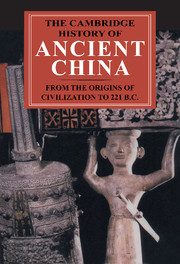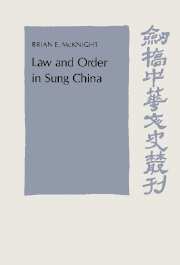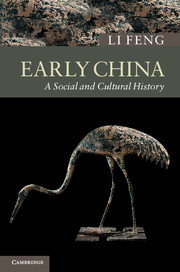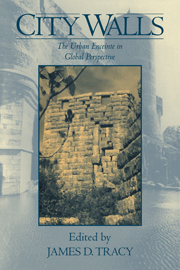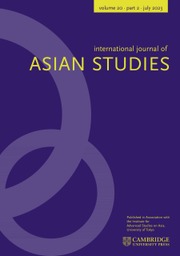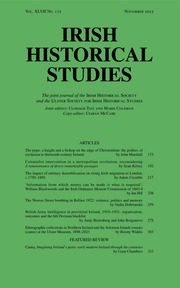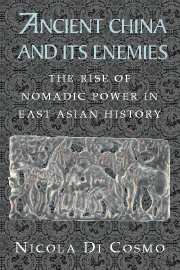
Ancient China and its Enemies
The Rise of Nomadic Power in East Asian History
$39.99 (G)
- Author: Nicola Di Cosmo, University of Canterbury, Christchurch, New Zealand
- Date Published: May 2004
- availability: Available
- format: Paperback
- isbn: 9780521543828
$
39.99
(G)
Paperback
Other available formats:
Hardback, eBook
Looking for an examination copy?
This title is not currently available for examination. However, if you are interested in the title for your course we can consider offering an examination copy. To register your interest please contact [email protected] providing details of the course you are teaching.
-
This comprehensive history of the northern frontier of China through the first millennium B.C. details the formation of two increasingly distinct cultural areas: the sedentary Chinese and the northern nomads. Nicola Di Cosmo explores the tensions existing between these two worlds as they became progressively more polarized, with the eventual creation of the nomadic Hsiung-nu empire in the north, and of the Chinese empire in the south. Di Cosmo investigates the origins of the antagonism between early China and its "barbarian" neighbors.
Read more- Provides the most extensive analysis to date of the combined archaeological and textual material for the subject from c. 900 to c.100 BC
- Gives a new interpretation of well-known events, including the construction of early walls, later unified into the so-called 'Great Wall'
- Provides a critical assessment of the first-ever written narrative of the northern nomads in Chinese history
Reviews & endorsements
"Throughout the second century B.C., the world of East Asia was divided between two great superpowers, the Han Chinese and the Hsiung-nu, facing off against each other sometimes peaceably and sometimes antagonistically. In Ancient China and Its Enemies, Nicola Di Cosmo provides a magisterial survey of the rise of the lesser known of these two powers, the nomadic Hsiung-nu. This book is invaluable not only for understanding the relations between ancient China and its major enemy, but also for understanding either of the powers individually." Edward Shaughnessy, University of Chicago
See more reviews"...the author deserves praise and gratitude for producing and invaluable piece of work. This book is a masterpiece of scholarship. It will rank as an indispensable tool for anyone studying foreign relationships in ancient China and beyond for years to come." Harvard Journal of Asiatic Studies
"...I am certain that anthropologists, political scientists, and others will find much here of interest. Di Cosmo writes well and offers fascinating anecdotes at just the right times." History
"...a carefully researched and superbly presented history of the northern frontier of China from 900 to 100 B.C...a fascinating, detailed, scholarly, and very strongly recommended historical survery and analysis." Library Bookwatch
"This outstanding work of scholarship demonstrates a magisterial command of the sources, asks important questions, and provides measured, finely nuanced answers."
Peter B. Golden, The International History ReviewCustomer reviews
Not yet reviewed
Be the first to review
Review was not posted due to profanity
×Product details
- Date Published: May 2004
- format: Paperback
- isbn: 9780521543828
- length: 380 pages
- dimensions: 229 x 152 x 21 mm
- weight: 0.56kg
- availability: Available
Table of Contents
Introduction
Part I:
1. The Steppe Highway: the rise of pastoral nomadism as a Eurasian phenomenon
2. Bronze, iron and gold: the evolution of nomadic cultures on the northern frontier of China
Part II:
3. Beasts and birds: the historical context of early Chinese perceptions of northern peoples
4. Walls and horses: the beginning of historical contacts between horse-riding Nomads and Chinese states
Part III:
5. Those who draw the bow: the rise of the Hsiung-nu Nomadic Empire and the political unification of the Nomads
6. From peace to war: China's shift from appeasement to military engagement
Part IV:
7. In search of grass and water: ethnography and history of the North in the Historian's Records
8. Taming the North: the rationalization of the nomads in Ssu-ma Ch'ien's historical thought
Conclusion.
Sorry, this resource is locked
Please register or sign in to request access. If you are having problems accessing these resources please email [email protected]
Register Sign in» Proceed
You are now leaving the Cambridge University Press website. Your eBook purchase and download will be completed by our partner www.ebooks.com. Please see the permission section of the www.ebooks.com catalogue page for details of the print & copy limits on our eBooks.
Continue ×Are you sure you want to delete your account?
This cannot be undone.
Thank you for your feedback which will help us improve our service.
If you requested a response, we will make sure to get back to you shortly.
×
